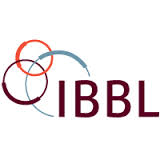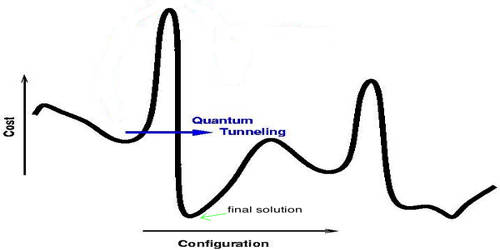Investment Operation of IBBL:
Investment Schemes:
Islami Bank Bangladesh Limited being an ideological banking organization is firmly committed to implement and materialize the economic and financial principles of Islam in the banking arena and thereby to do disparity and establish justice in the trade, commerce, and industry and build socio-economic infrastructure, create opportunities for employment and income generation and property alleviation, contribute to the socio-economic enlistment and sustained economic growth of the country by providing different types investment facilities.

Keeping the same in view, side by side with Commercial and Industrial Investment operations, many special Investment Schemes have been introduced by the Bank over the years like:
(i) Rural Development Scheme
(ii) House-hold durables Scheme
(iii) Investment Scheme for Doctors
(iv) Transport Investment Scheme for Doctors
(iv) Transport Investment Scheme
(v) Mirpur Silk weavers’ Investment Scheme
(vi) Small Business Investment Scheme
(vii) Agricultural Implements Investment Scheme
(viii) Car Investment Scheme
(x) Poultry Investment Scheme Investment Scheme
(xi) Small Transport Investment Scheme
(xii) Micro-Industries Investment Program, targeting different economic groups.
Objectives and Principles:
To invest funds strictly in accordance with the principles of Islami Shariah.
To diversify its investment portfolio by size of investment, by sectors (public and private) by economic purpose, by securities and by geographical area including industrial, commercial & agricultural.
To ensure mutual benefit both for the Bank and the investment client by professional appraisal of investment proposals, judicious sanction of investment close and constant supervision and monitoring thereof.
To makes investment keeping the socio economic requirement of the country in view.
To increases the number of potential investors by making participatory and productive investment.
To finance various development schemes for poverty alleviation, income and employment generation with a view to accelerate sustainable socio-economic growth and for enlistment of the society.
To invests in the form of goods and commodities rather than give out cash money to the investment clients.
To encourages social enlistment enterprises.
To shun even highly profitable investment in fields forbidden under Islamic Shariah and are harmful for the society.
The Bank extends investments under the principles of Bai-Murabaha, Bai-Muazzal, Hire Purchase under Shirkatul Melk and Mudaraba. The Bank is making sincere efforts to go for investment under Mudaraba principle in near future.
Importance of Assessing of Investment Needs:
Assessment of Investment needs is necessary for the following reasons.
- To detect actual Investment limit of Bank.
- To detect actual Investment against obsolete /out dated/non trading items.
- To assess the quality, quantity, price and marketability of the commodities
- To ensure proper follow-up supervision and monitoring of the Investment.
- To ensure capacity of the client in handling Investment activities.
- To over come the situation of Division of found by the clients
- To ensure trading instead of lending of money.
- To ensure payment against delivery of goods.
- To ensure actual buying and selling of goods.
- To select proper & genuine Investment client.
- To ensure viability/profitability of the project.
- To ensure compliance of Shariah Principles.
- To maintain discipline in the Investment portfolio of the Branch.
- To secure the Investment.
- To allow Investment for appropriate period.
- To handle the Investment proposal efficiently.
- To ensure investment for productive purpose.
- To identify the tenure of investment to be made i.e. for short term /mid term /long term.
- To know the objective of Investment.
- To ensure profitability of all concerned.
- To ensure welfare of the society.
- To ensure Business ethics.
- To minimize the risk of investment.
- To ensure national interest.
- To ensure recovery of investment in time.
26. To comply with the Bank’s target regarding diversification of Investment.
Criteria for selection:
Clients of the Bank for following Investment are to be selected with prudence and good judgment. It should be kept in mind that the person is important than their properties. They must have good character, commitment, capability, integrity and means. Their past performance must be verified first. None should be entertained without verification of his background, experience in the line of business, credit worthiness, financial needs, capacity to handle the finance applied for. Favoritism, personal relationship with a client must not get any consideration for providing Bank’s Investment. A detailed credit report of the client must be prepared and all necessary information’s should be collected and verified at the time of selection of the client. Clients of distant area/beyond control should not be entertained.
The following factors/qualities /information may be considered at the time of selection of investment client.
1.Brief history of financial /credit transaction of the client.
2.Social and financial behavior of the client should be verified /assessed.
3.Ability of the client of utilization of credit / Investment fund.
4.Ability of the client regarding repayment of Investment.
5.Equity of the client.
6.Effect of National & International Economic problems/crisis.
7.Analysis of Investment Risk.
The above mentioned factors may be categorized under 5-C’s.
1. Character
2. Capacity
3. Capital
4. Collateral
5. Condition
1. Character:
a) The Human Factor:
- Personal Circumstances (nationality, age, health condition, etc.)
- Credit Track Record
- Technical Qualifications (including business experience).
- Capacity to deal with people (or to manage relationships).
b) Management Assessment:
- Business Experience
- Management Succession
- Credit Discipline.
- “Lifestyle”.
2. Capacity:
a) The Performance Factor:
- Deployment of Resources (How much is the Investment need and how will it be used?)
- Profitability Prospects of the project and the Enterprise (How will the project impact on the enterprise?)
b) Financial Assessment:
- Profitability.
- Liquidity.
- Solvency.
3. Capital:
The Financial Factor:
- Client’s stake in business.
- Solvency of the enterprise.
- Availability of reserve resources.
- Other sources of income.
4. Collateral:
The Security Factor:
- Ensuring the Critical Success Factors of the Business.
- Quality of Collateral’s.
- Value of Collateral’s.
- Location of Collateral’s.
- Ease of Marketability of Collateral’s.
Necessity for preparation of credit report:
Preparation of credit report of the investment client is necessary and very much important for different purpose which is help to the investment officer to take decision for the invest of the propose project. By preparing the credit report is clearly mention the investment size, its rate of return and the fusibility of the project. The credit report help to identify the client past invest future of the client. Some important things as shown below,
- To select investment client carefully and judiciously.
- To ensure quality investment.
- To ascertain credit worthiness of the client.
- To ensure adequate securities both primary and collateral.
- To ensure clients business establishment and line of business.
- To ensure proper valuation of Assets and liabilities.
Investment Modes:
There are three types of Investment Mechanism, which are:
- Bai Mechanism (Trading Mode)
1. Bai Murabaha
2. Bai Muazzal
3. Bai Salam
4. Bai Istishna
- o Ijara Mechanism (Leasing Mode)
1. Hire purchase (Ijara)
2. Hire purchase under Shirkatul Melk
- Share Mechanisms
1. Mudaraba
2. Musharaka
Detailed Description of three Investment Mechanism :
Bai Mechanism (Trading Mode):
Bai Murabaha:
Meaning:
The terms “Bai-Murabaha” have been derived from Arabic words and (Bai and Ribbun). Te word means purchase and sale and the word means an agreed upon profit “Bai-Murabaha” means sale on agreed upon profit.
Definition:
Bai-Mudaraba may be defined as a contract between a buyer and a seller under which the seller sells certain specific goods (permissible under Islamic Shariah and the Law of the land), to the buyer at a cost plus agreed profit payable in cash or on any fixed future date in lump-sum or by installments. The profit marked-up may be fixed in lump-sum or in percentage of the cost price of the goods.
Types of Murabaha
In respect of dealing parties Bai-Murabaha may be of two types.
Ordinary Bai-Murabaha:
If there are only two parties, the seller and the buyer, where the seller as an ordinary trader purchases the goods from the market without depending on any order and promise to buy the same from him and sells those to a buyer for cost plus profit, then the sale is called Ordinary Bai-Murabaha.
Bai-Murabaha on Order and Promise :
If there are three parties, the buyer, the seller and the Bank as an intermediary trader between the buyer and the seller, where the Bank upon receipt order from the buyer with specification and a prior outstanding promise to buy the goods from the Bank, purchases the ordered goods and sells those to the ordering buyer at a cost plus agreed profit, the sale is called “Bai-Murabaha on Order or Promise”, generally known as Murabaha.
This Murabaha upon order and promise is generally used by the Islami Banks, which undertake the purchase of commodities according to the specification requested by the Clients and sale on Bai-Murabaha to the one who ordered for the goods and promised to buy those for its cost price plus a marked-up profit agreed upon previously by the two parties, the Bank and the Clients.
Important feature:
It is permissible for the Client to offer an order to purchase by the Bank agriculture goods deciding its specification and committing himself to buy the same from the Bank on Murabaha, i.e. cost plus agreed upon profit.
It is permissible to make the promise binding upon the Client to purchase from the Bank, that is, he is to either satisfy the promise or to indemnify the damages a caused by breaking the promise without excuse.
It is permissible to take cash/collateral security to guarantee the implementation of the promise or to indemnify the damages.
It is also permissible to document the debt resulting from Bai-Murabaha by a Guarantor, or a mortgage, or both lie any other debt. mortgage /Guarantee /Cash Security may be obtained prior to the signing of the Agreement or at the time of signing the Agreement.
Stock and availability of goods is a basic condition for signing a Bai-Murabaha Agreement. Therefore, the bank must purchase the goods as per specification of the Client to acquire ownership of the same before signing the Bai-Murabaha agreement with the Client.
After purchase of goods the Bank must bear the risk of goods until those are actually sold and delivered to the Client buyer, the Bank shall bear the consequences of any damages or defects, unless there is an agreement with the Client releasing the Bank of the defects, that means, if the goods are damaged, Bank is liable, if the goods are defective, (a defect that is not included in the release) the Bank bears the responsibility.
The bank must deliver the specified to the Client on specified date and at specified place of delivery as per Contract.
The Bank shall sell the goods at a higher price (Cost + Profit) to earn profit. The cost of goods sold and profit mark-up therewith shall separately and clearly be mentioned in the Bai-Murabaha Agreement. The profit mark-up may be mentioned in lump sum or in percentage of the purchase/cost price of the goods. But, under no circumstances, the percentage of the profit shall have any relation with time or expressed in relation with time, such as month, per annum etc.
The price once fixed as per agreement and deferred cannot be further increased.
It is permissible for the Bank to authorize any third party to buy and receive the goods on Bank’s behalf. The authorized must be in a separate contract.
Operational Procedures of Investment Mechanism of IBBL:
- Induction of client
- Application
- Categorization (4 categories)
- Processing and appraisal
- Sanction
- Documentation
- Purchase of goods by the Bank
- Taking delivery of goods by the Bank
- Sales and delivery of goods to the client
Bai-Muazzal:
Meaning
The terms “Bai” and “Muazzal” have been derived from Arabic words Baiun. The word Baiun means purchase and sale and the word Azl means a fixed time or a fixed period. “Bai-Muazzal” means sale for which payment is made at a future fixed date or within fixed period. In short, it is a sale on Credit.
Definition:
Bai-Muazzal may be defined as a contract between a buyer and a seller under which the seller sells certain specific goods (permissible under Islamic Shariah and the Law of the Country), to the buyer at a cost plus agreed profit payable in cash or on any fixed future date in lump-sum or by installments. The seller may also sell the goods purchased by him as per order and specification of the Buyer.
Categorization:
Categorize the proposal as under:
- “Bai-Muazzal” Commercial
Investment for Purchase and sale goods to individual /Firm/Company for Commercial purpose shall be termed as Bai-Murabaha Commercial.
· Bai-Muazzal Industrial
Investment to industrial undertakings in the Form of Land, Buildings, Machineries, Equipments, Raw Materials, etc. shall be termed as Bai-Murabaha Industrial.
· Bai-Murabaha Agriculture
Investment to agriculture sector for supply of seeds, fertilizer etc. shall be termed as Bai-Muazzal Agriculture.
- Bai-Muazzal Import
Investment for Import of goods from abroad shall be termed as Bai-Muazzal Import.
Bai Salam:
Under this mode Bank will executive purchase contract with the client and make payment against purchase of product, which is under process of production. Bai-Salam contract will be executed after making any investment showing price, quality, quantity, time, place and mode of delivery. The profit should be negotiated. It this mode the payment as the price of the goods is made at the time of Agreement and the delivery of the goods is deferred.
Important feature:
Bai-Salam is a mode of investment allowed by Islamic Shariah in which commodity(ies)/ product(S) can be sod without having the said commodity(ies)/ product(s) either in existence or physical/ constructive possession of the seller. If the commodity (ies)/ product(S) are ready for sale, Bai- Salam is not allowed in Shariah. Then the sale may be done either ill Bai-Murabaha or Bai-Muazzal mode of investment.
- Generally, industrial and agricultural products are purchased/sold in advance under Bai-Salam mode of investment to infuse finance so that product is not hankered due to shortage fund/cash.
- It is permissible to obtain collateral security from the seller client to secure the investment from any hazards viz non-supply/ partial supply of commodity (ies)/product(S), supply of low quality commodity (ies) /product(S).
- It is also permissible to obtain Mortgage and /or Personal Guarantee from a third party as security before the signing of the Agreement or at the time to signing the Agreement
- Bai-Salam on a particular commodity (ies)/ product(S) or on a product of a particular field or firm cannot be affected (for Agricultural Product(s) only).
- The seller (manufacturer) client may be made agent of the Bank to sell the goods delivered to the Bank by him provided a separate agency agreement is executed between the Bank and the Client (Agent).
Istishna:
Istishna is a contract between a manufacturer/seller and a buyer under which the manufacturer/seller sells specific product(s) after having manufactured, permissible under Islamic Shariah and Law of the Country after haying manufactured at an agreed price payable in advance or by installments within a fixed period or on/within a fixed future date on the basis of the order placed by the buyer.
Important feature:
- Istishna is an exceptional mode of investment allowed by Islamic Shariah in which product(s) can be sold without having the same in existence. In the product(s) are ready for sale. Istishna is not allowed is Shariah. Then the sale may be done either in Bai-Murabaha or Bai-Muazzal mode of investment. in this mode, deliveries of goods are deferred and payment of price may also be deferred.
- It facilitates the manufacturer sometimes to get the price of the goods in advance, which he may use as capital for producing the goods.
- It gives the buyer opportunity to pay the price in some future dales or by installments.
- It is a binding contract and no party or is allowed to cancel the Istishna contract after the piece is paid and received in full or in part or the manufacturer starts the work.
- Istishna is specially practiced in manufacturing and industrial sectors; however, it can be practiced in agricultural and constructions sectors also (Class Note, Abul Hussain).
Ijara Mechanism (Leasing Mode):
Hire Purchase/ Ijara:
The term Ijarah has been derived from the Arabic works Ajr and Ujrat which means consideration, return, wages or rent. This is really the exchange value or consideration, return, wages, rent of service of an Asset. Ijarah has been defined as a contract between two parties; the Hiree and Hirer where the Hirer enjoys or reaps a specific service on benefit gains a specified consideration or rent from the asset owned by the Hiree. It is a hire agreement under which a certain asset is hired out by the Hiree to a Hirer against fixed rent or rentals for a specified period.
Hire Purchase Under shirkatul Melk (HPSM):
Hire purchase under shirkatul Melk is a special type of contract, which has been developed through practice. Actually, it is a synthesis of three contracts: Shirkat, Ijara and sale. Shirkat means partnership. Shirkatul Melk means share an ownership. When two or more persons supply equity, purchase an asset, own the same jointly, and share the benefit as per agreement and bear the loss in proportion to their respective equity, the contract is called Shirkatul contract.
Stages of Hire Purchase under Shirkatul Melk:
Thus Hire Purchase under Shirkatul Melk Agreement has got three stages:
- Purchase under joint ownership.
- Hire and
- Sale and /or transfer of ownership to the other partner Hirer.
Share Mechanism:
Mudarabah:
It is a form of partnership where one party provides the funds while the other provides the expertise and management. The first party is called the Sahib-Al-Maal and the latter is referred to as the Mudarib. Any profits accrued are shared between the two parties on a pre-agreed basis, while capital loss is exclusively borne by the partner providing the capital.
Important features:
- Bank supplies capital as Sahib-Al-Mall and the client invest if in the business with his experience.
- The client maintains administration and management.
- Profit is divided as per management.
- Bank bears the actual loss alone.
- Client cannot take another investment for that specific business without the permission of the Bank.
Musharaka:
An Islamic financial technique, which adopts “equity sharing” as a means of financing projects. Thus, it embraces different types of profit and loss sharing partnership. The partners (entrepreneurs, bankers) etc share both capital and management of a project so that profits will be distributed among them as per rations, where loss is shared according to ratios of their equity participation.
Important feature:
- The investment client will normally run and manage the business.
- The Bank shall take part in the policy and decision making as well as overseeing (supervision and monitoring) the operations of the business of the client. The Bank may appoint suitable person(s) to run manage the business and to maintain books of accounts of the business property.
- As the investment client shall manage the enterprise, the Bank may pay more share of profit to him than that of his proportionate capital contribution.
- Loss, if any, share be shared on the basis of capital ratio.
Quark:
The word “Quart” is an Arabic word” which means loan or credit on advance. The literal meaning of Quard is giving “Fungible goods” for use without any extra value returning those goods. It must follow the principle of equal for equal return with homogeneous goods. Fungible goods may be rice, oil, salt, money etc. In Banking sector, money is used as quard. Quard is Halal by Islam for not to pay any extra or interest in return.
There characteristics of Fungible goods :
– Goods which are vanished /converted for one time use.
– No flow of service.
– Service can’t be separated from the actual goods.
Characteristics of Quard:
– There should have fungible goods.
– Goods must be returned equally.
– There is no extra payment.
– Specific period for returning goods.
Quard-E-Hasana:
Quard-E-Hasana is also one kind of Quard, which is given, with the expectation of return or not.
Operational Procedures of Investment Mechanism In IBBL :
Rules and Condition:
- There must be a contract between the Buyer (Bank) and Seller (Client), which shall be the principal instrument to govern the advance selling and buying.
- The name, specification, brand, quantity, quality, size, etc. of the goods must clearly be specified in the Contract leaving no ambiguity.
- Unit price and total price of the commodity /product must be fixed and mentioned in the Contract.
- The exact time and place of delivery must be specific.
- Mode of transportation, transportation cost, storage charge/ godown rent, insurance etc., if any must be specified in the contract.
- The name of party who will bear the cost of transportation, charge/ godown rent, insurance etc. also be mentioned in the contract.
- Price shall be paid to the seller in full as mentioned in the contract at the time of signing the contract.
- If mentioned in the contract, delivery of the commodity /products can be made/taken in installments or at a time within the contract period.
- Quantity of the commodity /products shall be in unequivocal terms.
- If the Seller/supplier (Client) fails to deliver the commodity /products in time as per specification i.e. in specified quality, quantity, the seller (Client) shall be bound to repay the price.
- It is not necessary to mention cost of commodity /products and profit separately in the contract, only purchase price of the same may be mentioned.
- After taking delivery of the commodity /product, the Buyer (Bank) shall be the owner & shall bear all risk until disposal /delivery of the same to the ultimate buyer.
- Unit price and total price of the commodity (es)/products must be fixed and mentioned in the Contract.
Categorization:
- The proposal may be categorized as under:
- Industrial (Including small and cottage)
- Agricultural
- Others, if any.
- Examine Shariah permissibility of the goods. Reject the proposal outright, if not permitted by Islamic Shariah.
- Check-up Credit Restriction Schedule of Bangladesh Bank and Head Office Current investment Policy Guidelines.
- Study on the strength, weakness, opportunity and treat (SWOT) of concerned business, trade, products and deals in the Appraisal Report.
- Separate Appraisal Report on F-167B is not required as the Client will avail Bai-Salam Investment under Composite limit sanctioned by the Bank.
- Visit the Business establishment of the Client. Talk to the business and important personalities of the locality to ascertain the Honesty, Integrity and Business dealings of the Client.
- Request for confidential report of the client from local Bank Branches. Confidential Report from Credit Information Bureau (CIB) of Bangladesh Bank through Head Office Investment Division as per Instruction Circular of Head Office in this Regard.
- Obtain Financial Statement/Balance Sheet of the Client for the last three consecutive years for investment Proposals of TK.50.00 Lac or above as per Head Office Instruction.
- Inspect Land, Building, other Assets and Properties proposed to be Mortgaged or Hypothecated.
- Forward Documents, Title Deeds and other relevant Papers to the approves Lawyer of the Bank for examination and furnishing his opinion.
- Please study the following carefully and note down the actual findings in the Appraisal Form against each item :
Processing and Appraisal:
Effective demand, price of the goods, Short or long-term duration, quality and other specifications of the goods, availability, etc. of the said or projected goods.
- Whether sale price of the goods is payable by the client at specified future date in lump sum or in installments as per proposal.
- Particulars figures and statistics in Appraisal form correctly with special attention to the following :
Composition of assets of the Client, extent and nature of liabilities of the Client, the value of Liquid Assets, Business Reputation of the Client experience of the Client, etc.
Contact primarily with the producers/sellers/suppliers of the goods in the market, study the market price and work out the purchase and sale prices of the goods as per guidelines.
Sanction and Disbursement:
- On receiving Application (F-136) under Composite Facilities /Investment approved by the Competent Authority, Pre-Audit Memo to be prepared and got the same approved by the Branch Incumbent for issuing Sanction Advice. Sanction Advice to be issued as per prescribed format.
- If the Sanction Advice is accepted by the Client, execute Bai-Salam Agreement (F-) immediately.
- Collaterals and its legality, title to the property and all required Security Documents and the Charge Document are to be examine/obtained at time of execution of Bai-Salam Agreement and all mortgage formalities are also to be completed at this stage, if not done earlier.
- Open file client-wise and deal-wise.
- Affix account number on each .file and on the related papers.
- Transaction to be recorded in the Computer by the authorized official properly as per guidelines in this regard.
- After execution of the Bai-Salam Agreement and completion of the mortgage formalities including Charge Document as provided herein above, disbursement may be made to the Client as per terms of Bai-Salam Agreement.
Documentation:
Obtain the following charge documents executed properly i.e. duly filled in, signed, and stamped witnessed where necessary:
- A copy of Application Form F-136.
- Single party D.P. Note (F-118), if there is no guarantor.
- Double Patty DP .Note (F-119) , if there is guarantor(s) to be made by the client in favor of the guarantor and endorsed by the later to the Bank.
- D.P. Note Delivery Letter (F-171).
- Sanction Advice.
- Bai-Salam Agreement.
- Letter of Disbursement
- Insurance Policy.
- Letter of Disclaimer
If the Investment is made collaterally secured by Mortgage of property, obtain the following document:
- In case of Equitable Mortgage, Memorandum of Deposit of Title Deed (MDTD) signed by the owner of the property.
- In case of Legal Mortgage, Registered Deed should be obtained. .Personal Guarantee of the owner(s) of the property on CF-14.
- Original Title Deed(s) with CS, RS, SA, Mutation Parch, DCR of the property and Mutation record.
- Upto-date Rent Receipt.
- .Memorandum of deposit of Title Deed.
- Non-encumbrance Certificate along with Search Fee Paid Receipt of the concerned Registry /Sub-Registry Office .
- Site plan (Map/Naksha) of the Mortgaged Property.
- Valuation Certificate issued by a competent Engineer and physically verified by the Branch Officials.
- Lawyer’s Certificate
- An Affidavit sworn
Where the Investment is secured by Hypothecation of Stock-trade, Machineries etc. also obtain the following Documents:
- Letter of Hypothecation (CF-5).
- Trust Receipt (CF-11).
In case investment is collaterally/additionally secured by pledge of Shares of reputed Public Limited Company on bank’s approved list and quoted in the stock Exchange, the following additional documents are to be obtained:
- Agreement for Pledge of Shares
- Blank Share Transfer Deed in Duplicate
- Share Delivery Letter
- Letter to the Concerned Company to register Lien in Bank’s Favor .
In case of investment to Partnership Firms, obtain the following Document:
- Letter of Partnership
- Copy of Partnership Deed
In case of investment to Private or Public Limited Company, obtain the following Document:
- Certified Copy of the Memorandum and Articles.
- Resolution of the Board of Directors
- Personal Guarantee of all the Directors
- Certificated of Incorporation
- Certificated of Commencement
In case of investment to a Trust Organization, obtain the following Document:
- Copy of Trust Deed
- Resolution of the Board of Trustees
- Charge Document
- Personal Guarantee of the Office Bearer
In case of investment to Co-operative Society, obtain the following Document
- Clearance from the Registrar
- Letter to be issued to the concerned Registrar
- Personal Guarantee of the Office Bearer
- A copy of Bye-laws of the Society
Rates of Stamp Duty:
Signature of the Client:
After Completion of Document, enter tl1e Document in Documents Execution Register.
Movement of Document, if any, should be duly recorded in the Document Ex-custody Register duly signed by the Custodians.
Clarification Regarding Ownership of Imported Raw Materials to Avoid Confusion of Buy Back
It may be mentioned here clearly that like all other import under cash/Barter/AID, the raw materials for manufacturing/processing/finishing of export products are also imported under Back to Back L/C for ultimate export under deferred payment through an undertaking of the Bank i.e. L/C. the import risks remain covered by insurance policies. The undertaking i.e. L/C of the Bank is obligatory on the issuing Bank for making payment of the documents are drawn strictly in accordance with the terms off the L/C. As such, the ownership of fabrics in fact lies with the Sank. Moreover, the Sill of lading and the Sill of Exchange are made to the order of the Bank. L/C Application and Agreement contains the clause regarding ownership of goods by the Bank. Still the Islami Bank opens the L/C/Back-to -Back L/C against the Letter of Authority (F-219) obtained from the importer to utilize his /their License /Authority for the import and undertake to purchase the goods so imported/purchased by the Bank for ultimate manufacturing /export of the products by the buyer (exporter).
Immediately after opening L/C, the consignment shall be sold by the Sank to the client under Bai-Murabaha /Bai-Muazzal (import) Agreement and Trust Receipt (T/R) Mortgage Documents, if any, etc. Accounting effects on such Bai-Murabaha/ Bai-Muazzal Investment shall be given as and when Bank’s fund is actually involved. Rebate shall, however be allowed for early adjustment/adjustment of profit, if any, charged in excess as per calculated rate of profit.















